[2012] 54 VST 26 (P and H) - RS Goyal & Associates
[2012] 54 VST 26 (P and H) - RS Goyal & Associates
[2012] 54 VST 26 (P and H) - RS Goyal & Associates
You also want an ePaper? Increase the reach of your titles
YUMPU automatically turns print PDFs into web optimized ePapers that Google loves.
VATLaws (Readable Version) - Saturday, March 09, 2013<br />
[<strong>2012</strong>] <strong>54</strong> <strong>VST</strong> <strong>26</strong> (P&H)<br />
[PUNJAB AND HARYANA HIGH COURT]<br />
Pepsi Foods Limited<br />
State of Punjab <strong>and</strong> Others<br />
V.<br />
KUMAR M.M. AND AJAY KUMAR MITTAL , JJ.<br />
January 12, <strong>2012</strong><br />
HF ♦ Assessee, including dealer (Registered or Unregistered)<br />
SALES TAX — EXEMPTION — NEW INDUSTRIAL UNIT — THREE UNITS SET UP FOR MANUFACTURE<br />
OF INDEPENDENT ITEMS AT THREE DIFFERENT PLACES — ELIGIBILITY CERTIFICATE GRANTED BY<br />
INDUSTRIES DEPARTMENT SEPARATELY IN RESPECT OF EACH UNIT — TAXATION AUTHORITIES<br />
NOT ENTITLED TO GO BEHIND CERTIFICATE — NO REQUIREMENT IN RULES THAT EACH UNIT<br />
SHOULD BE SEPARATELY REGISTERED AS DEALER — EXEMPTION CERTIFICATE TO BE GRANTED IN<br />
RESPECT OF EACH INDEPENDENTLY — PUNJAB GENERAL SALES TAX ACT (46 OF 1948), S. 2(D), (G)<br />
— PUNJAB SALES TAX (DEFERMENT AND EXEMPTION) RULES, 1991, RR. 2(XXVII), 3(1)(I).<br />
The Punjab Sales Tax (Deferment <strong>and</strong> Exemption) Rules, 1991 do not empower the sales tax authority to sit in<br />
judgment over the State Government in the matter of grant of eligibility certificate. The Sales Tax Department<br />
cannot probe into the eligibility of the dealer in respect of any additional unit once it has been accepted by the<br />
Industries Department.<br />
The Excise <strong>and</strong> Taxation Department has limited power while issuing an exemption certificate. The authorities<br />
of the Excise <strong>and</strong> Taxation Department while granting exemption certificates have only the power to see<br />
whether the eligibility certificate obtained by the dealer from the Industries Department is not as a result of any<br />
fraud, etc. : the authority is not clothed with the jurisdiction to re-examine the eligibility certificate issued by the<br />
Department of Industries <strong>and</strong> go behind it <strong>and</strong> refuse to issue an exemption certificate except to cancel<br />
exemption certificate in a case where fraud, etc., has been perpetuated by the dealer.<br />
The petitioner-dealer was engaged in the manufacture <strong>and</strong> sale of snack foods <strong>and</strong> beverages. The petitioner<br />
got itself registered under the Punjab General Sales Tax Act, 1948 with effect from June 5, 1989 <strong>and</strong> under the<br />
Central Sales Tax Act, 1956 on June 6, 1989 in respect of two units at a village C. On January 4, 1990, the<br />
dealer obtained registration under the Acts in respect of a third unit at a village Z. The dealer commenced<br />
production of processed potatoes/food grain at C on January 21, 1990 <strong>and</strong> of soft drink concentrate on May<br />
16, 1990. The production at processed fruit <strong>and</strong> vegetable plant at Z commenced on December 16, 1990. The<br />
dealer obtained eligibility certificates from the Department of Industries in terms of the Punjab Sales Tax<br />
(Deferment <strong>and</strong> Exemption) Rules, 1991 in respect of each of the three units. The quantum of sales tax<br />
incentives to which the dealer was entitled was quantified by the Department of Industries at Rs. 6 crores for<br />
each of the three units. The Assistant Excise <strong>and</strong> Taxation Commissioner granted the exemption certificate for<br />
the first unit, but rejected the dealer’s application in respect of the other two units, on the ground that a<br />
separate exemption certifi-cate could not be granted in view of rules 2(xxvii) <strong>and</strong> 3(1)(i) of the 1991 Rules. The<br />
dealer filed an appeal before the Deputy Excise <strong>and</strong> Taxation Commissioner (Appeals) who dismissed it. The<br />
dealer filed an appeal before the Sales Tax Tribunal which also dismissed the dealer’s appeal. On a writ<br />
petition:<br />
Held accordingly, allowing the petition, (i) that the sales tax authorities had no jurisdiction to call in question<br />
grant of eligibility certificates issued by the District Industries Centre.<br />
Kumar Fuels v. State of Uttar Pradesh [1986] 63 STC 467 (All) <strong>and</strong> Vadilal Chemicals Ltd. v. State of Andhra<br />
This copy was printed from VATLaws licensed to: R.S. <strong>Goyal</strong>
VATLaws (Readable Version) - Saturday, March 09, 2013<br />
Pradesh [2005] 142 STC 76 (SC) relied on.<br />
(ii) That the 1989 Industrial Policy <strong>and</strong> the 1991 Rules are incentives which have been conferred on<br />
entrepreneurs so as to give them incentives to establish units in backward areas. The dealer had acted on the<br />
basis of this assurance. The Director of Industries had clarified to the Excise <strong>and</strong> Taxation Commissioner that<br />
the three units of the dealer were independently manufacturing different items in independent manufacturing<br />
plants <strong>and</strong> were maintaining separate books of account. These units were, thus, to be considered as separate<br />
entities for the purpose of the incentives. Moreover, rule 2(xxvii) nowhere envisages that the unit should be<br />
independently or separately registered as a dealer. Under the circumstances, the State could not restrict the<br />
benefit of 1991 Rules to only one unit of the dealer. Further, the State Government by Notification No. G. S. R.<br />
78/P. A. 46/48/Ss. 27, 10-A <strong>and</strong> 30-A/Amd.(14)/ 98 dated November 9, 1998, published on November 13,<br />
1998, effective from October 1, 1992 had liberalized the policy by exp<strong>and</strong>ing the term “unit” wherein benefit of<br />
tax exemption had been granted to each unit independently.<br />
CWP No. 17685 of 1994 decided on January 12, <strong>2012</strong><br />
L. Nageshwara Rao, Senior Advocate with Rohit Khanna <strong>and</strong> Dheeraj Jain for the petitioner<br />
Piyush Kant Jain, Additional Advocate General, Punjab, for the respondents<br />
Cases referred to :<br />
Kumar Fuels v. State of Uttar Pradesh [1986] 63 STC 467 (All) relied on<br />
Vadilal Chemicals Ltd. v. State of Andhra Pradesh [2005] 142 STC 76 (SC) relied on<br />
Apollo Tyres v. Commissioner of Income-tax [2002] 255 ITR 273 (SC) referred to<br />
Assistant Commr. (CT) LTU v. Amara Raja Batteries Ltd. [2009] 24 <strong>VST</strong> 536 (SC) referred to<br />
Commissioner of Sales Tax v. Industrial Coal Enterprises [1999] 114 STC 365 (SC) referred to<br />
Kumar Fuels v. State of Uttar Pradesh [1986] 63 STC 467 (All) referred to<br />
Maurya Timbers v. State of Haryana [1997] 104 STC 243 (P&H) referred to<br />
State of Haryana v. Mahabir Vegetable Oils Pvt. Ltd. [2011] 38 <strong>VST</strong> 514 (SC) referred to<br />
Tata Iron & Steel Co. Ltd. v. State of Jharkh<strong>and</strong> [2005] 140 STC 284 (SC) [2005] 4 RC 641 referred<br />
to<br />
Vadilal Chemicals Ltd. v. State of Andhra Pradesh [2005] 142 STC 76 (SC) [2005] 5 RC 295 referred<br />
to<br />
The judgment of the court was delivered by<br />
--------------------------------------------------<br />
AJAY KUMAR MITTAL J.—The petitioner is a dealer registered under the<br />
provisions of the Punjab General Sales Tax Act, 1948 (in short, "the Act").<br />
It has approached this court through the present writ petition under article<br />
2<strong>26</strong> of the Constitution of India, seeking quashing of orders dated November<br />
22, 1993, February 1, 1994 <strong>and</strong> March 22, 1994, annexures P10, P11 <strong>and</strong><br />
P12, respectively, rejecting the applications for exemption from payment of<br />
sales tax 5<br />
Brief facts as narrated in the petition necessary for adjudication of<br />
controversy involved herein are that the petitioner is engaged in the<br />
manufacture <strong>and</strong> sale of snack foods <strong>and</strong> beverages. The petitioner got<br />
itself registered under the Punjab General Sales Tax Act, 1948 (in short,<br />
"the PGST Act") with effect from June 5, 1989 <strong>and</strong> under the Central Sales<br />
Tax Act, 1956 (for brevity, "the CST Act") on June 6, 1989 in respect of two<br />
units at Village Channo. On January 4, 1990, the petitioner obtained<br />
registration under the PGST Act <strong>and</strong> CST Act in respect of third unit at<br />
Village Zahura. The petitioner commenced production at Village Channo<br />
in respect of processed potatoes/foodgrain on January 21, 1990 <strong>and</strong> of soft<br />
This copy was printed from VATLaws licensed to: R.S. <strong>Goyal</strong><br />
Page No: 28
VATLaws (Readable Version) - Saturday, March 09, 2013<br />
drink concentrate on May 16, 1990. The production at processed fruit <strong>and</strong><br />
vegetable plant at Village Zahura commenced on December 16, 1990. The<br />
Punjab Government formulated industrial policy for the eighth five year<br />
plan, which became operative from April 1, 1989 till the end of the plan<br />
whereunder it notified the rules called "Punjab Industrial Incentives Code<br />
under the Industrial Policy Statement 1989" (hereinafter referred to as,<br />
"1989 Policy"). The policy offered fresh incentives for development of<br />
industry in Punjab <strong>and</strong> was designed to attract fresh investment in new<br />
thrust areas including agro-based sectors. The policy offered various incentives<br />
including deferment/exemption from payment of sales tax for new<br />
units as well as for units undergoing expansion/modernization/diversification.<br />
Pursuant to the aforesaid policy, notification dated July 25, 1990, was<br />
issued by the Excise <strong>and</strong> Taxation Department of the State of Punjab<br />
formulating the Punjab Sales Tax (Deferment & Exemption) Rules, 1991<br />
(in short, "the 1991 Rules") on March 20, 1991. The petitioner set up three<br />
independent industrial units at different places <strong>and</strong> obtained eligibility certificates<br />
from the Department of industries vide annexures P2, P5 <strong>and</strong> P6,<br />
in respect of each of the three units. The quantum of sales tax incentives to<br />
which the petitioner was entitled was also quantified by the Department of<br />
Industries at the maximum amount of Rs. 6 crores for each of the three<br />
units in terms of the 1989 Policy. It applied for exemption certificate in<br />
respect of first unit. The Assistant Excise <strong>and</strong> Taxation Commissioner,<br />
Sangrur, granted the exemption certificate vide order dated June 3, 1993,<br />
annexure P4. When application was filed by the petitioner for issuance of<br />
exemption certificate in respect of other two units, the Assistant Excise <strong>and</strong><br />
Taxation Commissioner vide order dated November 22, 1993, annexure<br />
P10 rejected the same on the ground that separate exemption certificate<br />
could not be granted in view of rules 2 (xxvii) <strong>and</strong> 3(1)(i) of the 1991 Rules.<br />
The petitioner filed an appeal before the Deputy Excise <strong>and</strong> Taxation Commissioner<br />
(Appeals), Patiala, who dismissed the same vide order dated<br />
February 1, 1994, annexure P11. Aggrieved by the order, the petitioner filed<br />
Page No: 29<br />
an appeal before the Sales Tax Tribunal, Ch<strong>and</strong>igarh, which was also<br />
dismissed vide order dated March 22, 1994, annexure P12. Hence this<br />
petition.<br />
In the written statement filed on behalf of respondent Nos. 1 to 4, the<br />
claim made by the petitioner has been controverted. It has been averred<br />
that the petitioner being a registered dealer has been granted exemption<br />
from payment of sales tax amounting to rupees six crores vide exemption<br />
certificate dated June 3, 1993. The applications for availment of sales tax<br />
incentive in respect of other two branches of the petitioner have been<br />
rightly rejected as they are not a "unit" within the meaning of clause (xxvii)<br />
of rule 2 of the 1991 Rules. However, the "unit" as a whole including the<br />
two branches at Channo <strong>and</strong> Zahura are entitled to sales tax incentive <strong>and</strong><br />
not each branch independently. Replication was filed by the petitioner<br />
reiterating its averments in the writ petition.<br />
Mr. Rao, learned senior counsel for the petitioner, submitted that the<br />
District Industries Centre, Malerkotla had issued the eligibility certificates<br />
for the period from January 21, 1990 to January 20, 1999, May 16, 1990 to<br />
May 15, 1999 <strong>and</strong> December 16, 1990 to December 15, 1999 <strong>and</strong> in such a<br />
situation, the Department of Excise <strong>and</strong> Taxation was not justified in rejecting<br />
the issuance of exemption certificates under the 1991 Rules. Learned<br />
senior counsel referred to the 1989 Policy issued by the State of Punjab on<br />
March 30, 1989 to grant package of incentives to attract fresh investment in<br />
This copy was printed from VATLaws licensed to: R.S. <strong>Goyal</strong>
VATLaws (Readable Version) - Saturday, March 09, 2013<br />
the new thrust areas like high technology <strong>and</strong> agro based sectors.<br />
It was pointed out that the petitioner is covered under category A <strong>and</strong><br />
was entitled to 125 per cent of the fixed capital investment subject to<br />
maximum of rupees six crores to be availed of in maximum nine years<br />
period from the date of starting production. It was further argued that the<br />
rules nowhere restricted the maximum of Rs. 6 crores to one dealer but<br />
each unit was entitled to separate limit of Rs. 6 crores individually.<br />
The learned senior counsel relied upon the following observations<br />
recorded in the judgment of the apex court in Tata Iron & Steel Co. Ltd. v.<br />
State of Jharkh<strong>and</strong> [2005] 140 STC 284 (SC); [2005] 4 RC 641; [2005] 4<br />
SCC 272 (pages 301 <strong>and</strong> 302 in 140 STC):<br />
"36. Despite the fact that sections 22, 23 as also section 13(1)(b) of<br />
the 1981 Act refer to a dealer <strong>and</strong> section 14 thereof refers to registration<br />
of dealers m<strong>and</strong>ating filing of return in respect of its activities,<br />
the same would not mean that the State cannot grant the same or<br />
different benefits to different units producing different products of the<br />
same assessee. The State has the power not only to grant exemptions,<br />
but also direct such grant relating to a class or description of goods. If<br />
Page No: 30<br />
the State has the power to issue a notification, it has the power to<br />
amend, vary or rescind the same <strong>and</strong> exercise such power from time<br />
to time as <strong>and</strong> when occasion arises therefor.<br />
37. The notifications in question, however, are not exemption notifications.<br />
They provide for set off or adjustment of tax. A dealer in<br />
terms of the 1981 Act must be taxed but it may be granted exemption<br />
therefrom in respect of certain items or adjustment or set off thereof<br />
in relation to its particular products manufactured in a new or existing<br />
industry. A notification may be issued under section 22 or 23 in<br />
respect of one or more products or in respect of one or more units.<br />
However, whether a dealer would be entitled to the benefit of set off<br />
unitwise or not will depend upon the language employed keeping in<br />
view the object the notifications seek to achieve. It will not be proper<br />
for a court of law to prescribe limitations or restrictions when there is<br />
none or vice versa."<br />
Elaborating further, learned senior counsel for the petitioner submitted<br />
that the certificate of eligibility which was granted by the District Industries<br />
Centre, the Excise <strong>and</strong> Taxation Department exceeded its jurisdiction in<br />
declining issuance of exemption certificate in view of the judgment of the<br />
apex court in Vadilal Chemicals Ltd. v. State of Andhra Pradesh [2005] 142<br />
STC 76 (SC); [2005] 5 RC 295; [2005] 6 SCC 292, <strong>and</strong> of the Allahabad<br />
High Court in Kumar Fuels v. State of Uttar Pradesh [1986] 63 STC 467<br />
(All).<br />
In the end, it was submitted that the 1989 Policy was promulgated for<br />
granting incentives to the entrepreneurs who established their business<br />
ventures so as to attract investment in the State of Punjab. The policy was,<br />
thus, required to be interpreted liberally though there was only one interpretation<br />
as canvassed by the petitioner. Even if two interpretations are<br />
possible, then the one which favoured the petitioner was required to be<br />
adopted. Contending that literal meaning should be assigned to exemption<br />
notification so as to achieve the purpose <strong>and</strong> object with which it has been<br />
This copy was printed from VATLaws licensed to: R.S. <strong>Goyal</strong>
VATLaws (Readable Version) - Saturday, March 09, 2013<br />
issued, support was gathered from observations noticed in paras 21 <strong>and</strong> 24<br />
in SCC (paras 24 <strong>and</strong> 28 in 24 <strong>VST</strong> 536) in Assistant Commr. (CT) LTU v.<br />
Amara Raja Batteries Ltd. [2009] 24 <strong>VST</strong> 536 (SC); [2009] 8 SCC 209,<br />
which read thus:<br />
"24. An exemption notification should be given a literary meaning.<br />
Recourse to other principles or canons of interpretation of statute<br />
should be resorted to only in the event the same gives rise to anomaly<br />
or absurdity. The exemption notification must be construed having<br />
regard to the purpose <strong>and</strong> object it seeks to achieve. The Government<br />
Page No: 31<br />
sought for increase in industrial development in the State. Such<br />
benevolent act on the part of the State, unless there exists any<br />
statutory interdict, should be given full effect (See Vadilal Chemicals<br />
Ltd. v. State of Andhra Pradesh [2005] 142 STC 76 (SC); [2005] 5 RC<br />
295; [2005] 6 SCC 292).<br />
25. to 27. . . .<br />
28. The exemption notification furthermore as is well known<br />
should be construed liberally once it is found that the entrepreneur<br />
fulfils all the eligibility criteria. In reading an exemption notification,<br />
no condition should be read into it when there is none. If an entrepreneur<br />
is entitled to the benefit thereof, the same should not be<br />
denied. (See Commissioner of Sales Tax v. Industrial Coal Enterprises<br />
[1999] 114 STC 365 (SC); [1999] 2 SCC 607))."<br />
Furthermore, support was gathered from para 7 of the decision of this<br />
court in Maurya Timbers v. State of Haryana [1997] 104 STC 243 (P&H);<br />
[1996] 114 PLR 609, which is to the following effect (pages 248 <strong>and</strong> 249 in<br />
104 STC):<br />
"7. The learned counsel for the petitioner has argued that the<br />
eligibility certificate had been issued to the petitioner on January 25,<br />
1990 but had been made effective from the date of commencementof<br />
production. Similarly, exemption certificate had been issued on May<br />
<strong>26</strong>, 1990 but it was also made operational from the date of commencement<br />
of production. Both the certificates had been issued by<br />
two competent authorities <strong>and</strong> there was no occasion for the revisional<br />
authority to exercise powers under section 40 of the Act so as<br />
to modify or withdraw the certificates. The revisional authority, while<br />
revising the assessment order, chose a dubious method, not permissible<br />
in law, to cancel the exemption certificate issued by the Deputy<br />
Excise <strong>and</strong> Taxation Commissioner. It has to be noticed that the revisional<br />
authority, who passed the revising order under section 40 of<br />
the Act, was also a Deputy Excise <strong>and</strong> Taxation Commissioner <strong>and</strong><br />
therefore, was not higher in rank than the authority empowered to<br />
issue the exemption certificate. While revising the assessment order,<br />
the revisional authority withdrew the benefit of exemption which he<br />
could not do while exercising powers under section 40 of the Act. The<br />
rules governing the grant of eligibility certificate make it very clear<br />
that such a certificate would be granted by a competent screening<br />
committee, called as the lower level screening committee, <strong>and</strong> such a<br />
certificate can be withdrawn by that committee alone. Since the<br />
petitioner had already been declared as eligible for the purposes of<br />
This copy was printed from VATLaws licensed to: R.S. <strong>Goyal</strong>
VATLaws (Readable Version) - Saturday, March 09, 2013<br />
Page No: 32<br />
benefit of exemption by the lower level screening committee, with<br />
effect from June 20, 1989, there was no occasion to reach a conclusion<br />
that no eligibility or exemption could be granted prior to the date of<br />
registration. In the eligibility certificate issued on January 25, 1990,<br />
the registration numbers of the existing unit have been mentioned.<br />
The relevant column for the registration certificate number of the new<br />
diversified unit has not been filled in the eligibility certificate. The<br />
certificate was issued for a period of seven years starting from June 20,<br />
1989. Therefore, the lower level screening committee did not consider<br />
it necessary that the new diversified unit should have immediately<br />
obtained the registration certificate under the Act. Even if it was an<br />
error, that could be rectified by the lower level screening committee<br />
only. In the exemption certificate the Deputy Excise <strong>and</strong> Taxation<br />
Commissioner has given the registration number JAG-HGST-66<strong>54</strong><br />
valid from January 25, 1990. It is thus clear that the authority issuing<br />
the exemption certificate took notice of the registration certificate<br />
obtained by the diversified unit <strong>and</strong> found it appropriate to grant<br />
exemption from the date of commencementof production as had<br />
been done by the lower level screening committee while granting the<br />
eligibility certificate. The existing industrial unit of the petitioner did<br />
hold necessary registration certificate <strong>and</strong> the lower level screening<br />
committee, taking notice of it, issued eligibility certificate."<br />
Controverting the submissions made by learned senior counsel for the<br />
petitioner, Mr. Jain, learned counsel for the State, submitted that the "unit"<br />
has been defined under rule 2(xxvii) to mean an industrial unit which was<br />
registered as a dealer under the Act. A "dealer" has been defined under<br />
section 2(d) of the Act <strong>and</strong> "registered" means registered under the Act in<br />
terms of section 2(g) of the Act. The petitioner being a dealer which was<br />
registered could not avail of separate exemption in respect of three units.<br />
According to the State counsel, maximum incentive that was available was<br />
rupees six crores <strong>and</strong> by the method so adopted by the petitioner, the said<br />
limit had been enhanced to rupees 18 crores which was not the policy of<br />
the Government. It was further submitted that the policy though was<br />
liberalized in 1998 <strong>and</strong> definition of "unit" under rule 2(xxvii) exp<strong>and</strong>ed but<br />
it was effective from 1992 <strong>and</strong> therefore, the same was not applicable to the<br />
petitioner. Support was sought to be gathered from the judgment of the<br />
honourable Supreme Court in State of Haryana v. Mahabir Vegetable Oils<br />
Pvt. Ltd. [2011] 38 <strong>VST</strong> 514 (SC); [2011] 3 SCC 778, urging that doctrine of<br />
promissory estoppel is an equitable remedy <strong>and</strong> can be moulded depending<br />
upon the facts of each case <strong>and</strong> not straitjacketed into pigeonholes.<br />
Page No: 33<br />
After giving thoughtful consideration to the respective submissions, we<br />
are impressed by the submissions made by learned senior counsel for the<br />
petitioner.<br />
The controversy involved herein has two facets. Firstly, whether the<br />
Excise <strong>and</strong> Taxation Department was justified in denying exemption<br />
certificate when the Department of Industries had issued the eligibility<br />
certificate to the petitioner. Secondly, whether, in the facts <strong>and</strong> circumstances,<br />
the petitioner who had established three separate units though<br />
under one entrepreneurship would be entitled to independent exemption<br />
limit of Rs. 6 crores for each of the three units.<br />
This copy was printed from VATLaws licensed to: R.S. <strong>Goyal</strong>
VATLaws (Readable Version) - Saturday, March 09, 2013<br />
Adverting to first issue <strong>and</strong> referring to relevant Rules <strong>and</strong> clauses of<br />
1989 Policy <strong>and</strong> 1991 Rules, we quote below the same:<br />
"Sales Tax Incentives under 1989 Policy<br />
6. Sales/Purchase Tax Exemption <strong>and</strong> Sales Tax Deferment<br />
6.1 Eligibility.—(1) Subject to provisions of rule 4.3, incentives<br />
under this rule shall be admissible to a unit which is registered as a<br />
dealer under the Punjab General Sales Tax/Central Sales Tax Act.<br />
(2) to (4) . . .<br />
6.2 Quantum of entitlement.—(1) Sales/purchase tax exemption or<br />
sales tax deferment shall be available to units in different growth<br />
areas subject to maximum benefits to be regulated as per table I<br />
which reads as under:<br />
Category<br />
(Backwardness)<br />
SSI Medium <strong>and</strong> large Time limit Maximum limit<br />
A 150% of FCI (fixed 125% of FCI (fixed Nine years from the date 6.00 crores<br />
capital investment) capital investment) of starting production<br />
B 125% of FCI 100% of FCI Seven years from the 4.50 crores<br />
date of starting<br />
production.<br />
C 100% of FCI 90% of FCI Five years from the date<br />
of starting production.<br />
3.00 crores<br />
(2) <strong>and</strong> (3) . . .<br />
Reference was also made to clause (4) which reads thus:<br />
(4) The expansion <strong>and</strong>/or modernization part shall be considered<br />
as an independent identity for the purpose of sales tax concession <strong>and</strong><br />
industrial unit shall obtain a separate sales tax registration certificate<br />
for the additional capacity <strong>and</strong> incremental production resulting from<br />
such expansion/modernization.<br />
(5) <strong>and</strong> (6) . . .<br />
15. Interpretation<br />
In any matter or a doubt arising out of any of these rules, the<br />
interpretation by <strong>and</strong> decision of Secretary Industries shall be final.<br />
Deferment <strong>and</strong> Exemption under 1991 Rules<br />
(1) Short title, commencement <strong>and</strong> application.—(1) These Rules<br />
may be called the Punjab General Sales Tax (Deferment <strong>and</strong> Exemption)<br />
Rules, 1991.<br />
(2) . . .<br />
Page No: 34<br />
This copy was printed from VATLaws licensed to: R.S. <strong>Goyal</strong>
VATLaws (Readable Version) - Saturday, March 09, 2013<br />
(3) they shall apply to the units which came into production for<br />
the first time, on or after the first day of April 1989 or wherein<br />
modernization, expansion or diversification, in terms of the Industrial<br />
Policy is carried out.<br />
2. Definitions.—In these Rules, unless the context otherwise<br />
requires—<br />
(i) to (ix). . .<br />
(x) 'eligible unit' means a unit in respect of which eligibility<br />
certificate has been granted by the district officer of the Department<br />
of Industries under the Industrial Policy;<br />
(xi) 'eligibility certificate' means a certificate granted by the competent<br />
authority of the Department of Industries;<br />
(xii) 'exemption certificate' means a certificate granted in form ST<br />
(D <strong>and</strong> E) II by the prescribed authority in respect of an eligible unit<br />
for availing exemption from the payment of sales tax excluding purchase<br />
tax on goods specified in Schedule C appended to the Act, <strong>and</strong><br />
on 'declared goods', declared as such in section 14 of the Central<br />
Sales Tax Act, 1956, but including purchase value of goods purchased<br />
from within the State <strong>and</strong> used for any of the purposes specified in<br />
section 4B of the Act.<br />
(xiii) to (xvii) . . .<br />
(xviii) 'large <strong>and</strong> medium scale unit' means an industrial unit<br />
specified as such by the Central Government <strong>and</strong> either licensed under<br />
the Industrial (Development <strong>and</strong> Regulation) Act, 1951, if so required,<br />
or duly registered with the Director General of Technical Development,<br />
Textile Commissioner of the Central Government, Department of<br />
Electronics or any other prescribed competent authority;<br />
Page No: 35<br />
(xix) to (xxvi) . . .<br />
(xxvii) 'unit' means an industrial unit which is registered as a<br />
dealer under the Act.<br />
3. Conditions for eligibility.—(1) Deferment of, or exemption from<br />
the payment of tax under the Act shall be admissible to a unit—<br />
(i) in respect of which an eligibility certificate has been granted by<br />
the competent authority of the Department of Industries <strong>and</strong> which<br />
has not been included in the negative list;<br />
(ii), (iii) <strong>and</strong> (2) . . .<br />
4. . . .<br />
5. Mode of availing benefit of deferment of or exemption from the<br />
liability to pay tax.—(1) A unit in respect of which eligibility<br />
certificate has been issued shall within a period of thirty days from the<br />
date of its issue make an application for the grant of benefit of<br />
This copy was printed from VATLaws licensed to: R.S. <strong>Goyal</strong>
VATLaws (Readable Version) - Saturday, March 09, 2013<br />
deferment of or exemption form, the liability to pay tax in form ST<br />
(D <strong>and</strong> E) I to the prescribed authority. The prescribed authority shall<br />
issue certificate in form ST (D <strong>and</strong> E) I within a period of thirty days of<br />
receipt of the application which should be complete in all respects. In<br />
case, the certificate is not issued within thirty days, the prescribed<br />
authority shall record the reasons for the delay.<br />
(2) The application made under sub-rule (1) shall be accompanied<br />
with the eligibility certificate <strong>and</strong> other relevant documents specified<br />
in the application form ST (D <strong>and</strong> E) I.<br />
(3) On receipt of the application under sub-rule (1), the prescribed<br />
authority shall make such enquiries as may be considered<br />
necessary by it.<br />
(4) to (7) . . .<br />
8. Cancellation of deferment or exemption certificate.—(1) The<br />
deferment or exemption certificate granted in respect of a unit shall<br />
be liable to be cancelled on any of the following grounds, namely:<br />
(i) that the certificate has been obtained by fraud, deceit, misrepresentation,<br />
misstatement or concealment of material facts;<br />
(ii) to (vi) . . .<br />
(vii) that the competent authority of the Department of Industries<br />
competent to grant eligibility certificate has recommended that<br />
the deferment or exemption certificate be cancelled.<br />
(2) ..."<br />
Page No: 36<br />
On a conjoint reading of the aforesaid rules, it transpires that it m<strong>and</strong>ates<br />
the dealer to fulfil the following conditions before it can claim<br />
exemption from sales tax under 1991 Rules:<br />
"(a) Application is in the prescribed form, i.e., form ST (D&E) 1<br />
(rule 5(1)).<br />
(b) Application has been filed within 30 days of the grant of<br />
eligibility certificate by the Department of Industries under the Rules<br />
(rule 5(1)).<br />
(c) The application is accompanied with eligibility certificate issued<br />
by the Department of Industries under the Rules <strong>and</strong> other documents<br />
as specified in the application (rule 5(2))."<br />
The rules do not empower the sales tax authority to sit over the judgment<br />
of the State Government in the matter of grant of eligibility certificate.<br />
The Sales Tax Department cannot probe into the eligibility of the<br />
dealer in respect of any additional unit once it has been accepted by the<br />
Industries Department. The action of the Sales Tax Department in fact<br />
results into two authorities examining the eligibility of the dealer which the<br />
rules never envisaged or contemplated.<br />
This copy was printed from VATLaws licensed to: R.S. <strong>Goyal</strong>
VATLaws (Readable Version) - Saturday, March 09, 2013<br />
The Excise <strong>and</strong> Taxation Department has the limited power while issuing<br />
exemption certificate. The authorities of the Excise <strong>and</strong> Taxation<br />
Department while granting exemption certificate has only the power to see<br />
whether the eligibility certificate obtained by the dealer from the Industries<br />
Department is not as a result of any fraud, etc. In other words, the said<br />
authority is not clothed with the jurisdiction to re-examine the eligibility<br />
certificate issued by the Department of Industries <strong>and</strong> go behind it <strong>and</strong><br />
refuse to issue exemption certificate except to cancel exemption certificate<br />
in a case where fraud, etc., has been perpetuated by the dealer.<br />
The apex court in Vadilal Chemicals Ltd.'s case [2005] 142 STC 76 (SC);<br />
[2005] 5 RC 295; [2005] 6 SCC 292, dealing with an identical issue held<br />
that where eligibility certificate had been granted by the Department of<br />
Industries, the same could not be cancelled by the sales tax authorities.<br />
Relevant observations are as under (pages 86 <strong>and</strong> 87 in 142 STC):<br />
"Furthermore under the incentive scheme in question, there was<br />
only one method of verifying the eligibility for the various incentives<br />
granted including sales tax exemption. The procedure was for the<br />
matter to be scrutinized <strong>and</strong> recommended by the State Level Committee<br />
<strong>and</strong> District Level Committee <strong>and</strong> the certification by the<br />
Department of industries <strong>and</strong> commerce by issuing an eligibility certificate.<br />
There was no other method prescribed under the scheme for<br />
determining an industrial unit's eligibility for the benefits granted.<br />
Page No: 37<br />
The Department of Industries <strong>and</strong> Commerce having exercised its<br />
mind, <strong>and</strong> having granted the final eligibility certificate (which was<br />
valid at all material times), the Commercial Taxes Department could<br />
not go beyond the same. More so when the Commissioner, Sales Tax,<br />
had accepted the eligibility certificate issued to the appellant <strong>and</strong> had<br />
separately notified the appellant's eligibility for exemption under the<br />
1993 G. O. In these circumstances the DCCT certainly could not<br />
assume that the exemption was wrongly granted nor did he have the<br />
jurisdiction under section 20 of the State Act to go behind the eligibility<br />
certificate <strong>and</strong> embark upon a fresh enquiry with regard to the<br />
appellant's eligibility for the grant of the benefits. The counteraffidavit<br />
filed by the respondents-sales tax authorities is telling. It is<br />
said that the Sales Tax Department had decided to cancel the eligibility<br />
certificates for sales tax incentives. As we have said the eligibility<br />
certificates were issued by the Department of Industries <strong>and</strong> Commerce<br />
<strong>and</strong> could not be cancelled by the sales tax authorities (See in<br />
this connection: Apollo Tyres v. Commissioner of Income-tax, Kochi<br />
[2002] 255 ITR 273 (SC)."<br />
The Allahabad High Court delving into similar issue in Kumar Fuels's<br />
case [1986] 63 STC 467 (All) recorded as under (pages 473, 474 <strong>and</strong> 476 in<br />
63 STC):<br />
"The next question to be considered is as to who is entitled to<br />
grant exemption under section 4A of the Act <strong>and</strong> whether the Sales<br />
Tax Officer has any competency to sit in judgment over the grant of<br />
eligibility certificate.<br />
The exemption under section 4A is to be granted by the State<br />
Government or by any officer so authorized. Section 4A was<br />
amended substantially with effect from October 12, 1983, by U.P.<br />
This copy was printed from VATLaws licensed to: R.S. <strong>Goyal</strong>
VATLaws (Readable Version) - Saturday, March 09, 2013<br />
Ordinance No. 46 of 1983. The State Government was authorized to<br />
exempt sales tax of any goods made by the manufacturer <strong>and</strong> it was<br />
also authorized to declare that the tax shall be levied at a reduced<br />
rate. The concession or exemption was to be granted if the State<br />
Government was of the opinion that it was necessary for increasing<br />
the production of any goods or for promoting the development of<br />
industry in the State generally or in any district or part of districts<br />
which are industrially backward. This position existed in February<br />
1985, when the eligibility certificate was granted in the present case.<br />
Therefore, at the relevant period of time, i.e., February, 1985, the State<br />
Government alone was empowered to grant exemption. Whether the<br />
applicant was an industrial unit or not, whether the applicant was<br />
Page No: 38<br />
eligible for exemption or not had to be considered by the State<br />
Government or by an officer empowered by the State Government.<br />
There was no power with any officer of the Sales Tax Department of<br />
the Government in this behalf. Neither the Sales Tax Commissioner<br />
nor the Assistant Commissioner nor the Sales Tax Officer had been<br />
conferred any power either to grant any exemption or sit in judgment<br />
over the grant of exemption.<br />
...<br />
We are, therefore, of the view that the Sales Tax Officer, has no<br />
jurisdiction to call in question the grant of eligibility certificate.<br />
Various notifications preceding the notification dated December <strong>26</strong>,<br />
1985, are notifications which are prior to the introduction of section<br />
4A(2)(d). They would not be relevant for the purposes of this case.<br />
The provision requiring a manufacturer furnishing to the assessing<br />
authority an eligibility certificate granted by such officer was enforced<br />
only from September 13, 1985. Therefore, the concluding words of<br />
the aforesaid sub-section, viz., 'in accordance with such procedure as<br />
may be specified' would only be such procedure as has been specified<br />
after coming into force of section 4A(2)(d). Prior to the coming into<br />
force of this section the st<strong>and</strong> of the respondents is that even if a<br />
matter was in consideration for grant of exemption declaration that it<br />
is a new unit, no assessment was made. The position even after the<br />
amendment has been clarified by means of the notification dated<br />
December <strong>26</strong>, 1985. This notification has been issued under section<br />
4A of the Act which is exclusively in the domain of the State<br />
Government. It is relevant to mention here that in none of the notices<br />
issued by the sales tax authorities it has been mentioned that the<br />
person who granted the eligibility certificate was not empowered to<br />
grant it or in granting it he has not followed the procedure prescribed.<br />
In fact these notices mention such irregularities which are to be considered<br />
<strong>and</strong> are in the exclusive domain of the State Government<br />
while granting such certificate is beyond his jurisdiction."<br />
Thus, we conclude that the sales tax authorities had no jurisdiction to<br />
call in question grant of eligibility certificates issued by the District Industries<br />
Centre.<br />
Examining the second issue, it would be necessary to scan the purpose<br />
with which the 1989 Policy <strong>and</strong> 1991 Rules have been formulated. These<br />
are incentives which had been conferred on an entrepreneur so as to give<br />
him incentive to establish his unit/industry in a backward area. The peti-<br />
This copy was printed from VATLaws licensed to: R.S. <strong>Goyal</strong>
VATLaws (Readable Version) - Saturday, March 09, 2013<br />
tioner had acted on the basis of this assurance. Even Director of Industries<br />
Page No: 39<br />
vide communication dated June 4, 1993 (annexure P3) addressed to the<br />
Excise <strong>and</strong> Taxation Commissioner had clarified that three units of the<br />
petitioner were independent manufacturing different items in independent<br />
manufacturing plants <strong>and</strong> were maintaining separate books of account.<br />
These units were, thus, to be considered as separate identity for the<br />
purpose of the incentives. Moreover, rule 2(xxvii) nowhere envisages, that<br />
the unit should be independently or separately registered as a dealer. The<br />
definition of the term "unit" in a restrictive manner as has been sought to<br />
be canvassed by learned State counsel does not spell out from the reading<br />
of rule 2(xxvii) defining "unit" <strong>and</strong> justify the tenor of the policy <strong>and</strong> the<br />
rules framed. Under the circumstances, the State could not restrict the<br />
benefit of 1991 Rules to only one unit of the petitioner. Further, the meaning<br />
to the term "unit" which we have noted above has the approval of<br />
legislative intent also as the State Government vide Notification No. GSR<br />
78/P.A.46/48/Ss.27, 10-A <strong>and</strong> 30-A/Amd.(14)/ 98 dated November 9, 1998,<br />
published on November 13, 1998, effective from October 1, 1992 had<br />
liberalized the policy by exp<strong>and</strong>ing the term "unit" wherein benefit of tax<br />
exemption had been granted to each unit independently. Adverting to the<br />
judgment in Mahabir Vegetable Oils Pvt. Ltd.'s case [2011] 38 <strong>VST</strong> 514<br />
(SC); [2011] 3 SCC 778 on which reliance has been placed by the respondents,<br />
it does not help the State being on individual fact situation<br />
involved therein. The writ petition, thus, deserves to succeed on both the<br />
counts.<br />
Accordingly, this petition is allowed. The impugned orders, annexures<br />
P10, P11 <strong>and</strong> P12, are quashed <strong>and</strong> respondent No. 4 is directed to issue<br />
eligibility certificate to the petitioner in respect of two other units as well,<br />
i.e., at Village Channo <strong>and</strong> Village Zahura.<br />
Page No: 40<br />
This copy was printed from VATLaws licensed to: R.S. <strong>Goyal</strong>


![[2012] 54 VST 26 (P and H) - RS Goyal & Associates](https://img.yumpu.com/38348208/1/500x640/2012-54-vst-26-p-and-h-rs-goyal-amp-associates.jpg)
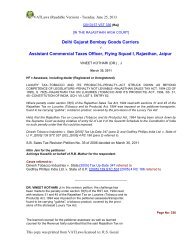
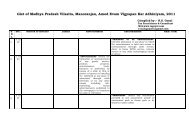
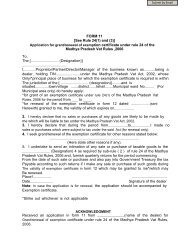
![levy of tax under vat 9b an stamp duty simultaneously[1] - RS Goyal ...](https://img.yumpu.com/45559052/1/158x260/levy-of-tax-under-vat-9b-an-stamp-duty-simultaneously1-rs-goyal-.jpg?quality=85)
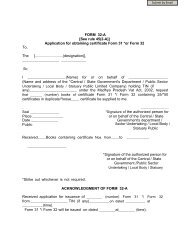
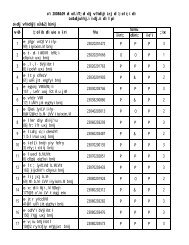
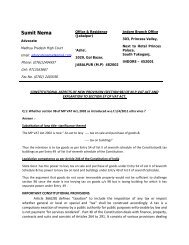
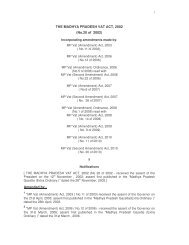
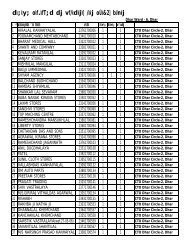
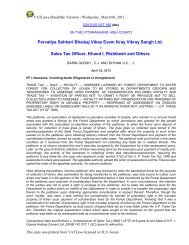
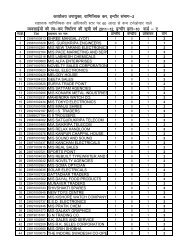
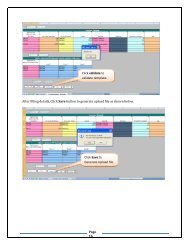
![[2012] 47 vst 116 (cestat) - RS Goyal & Associates](https://img.yumpu.com/38348091/1/190x245/2012-47-vst-116-cestat-rs-goyal-associates.jpg?quality=85)
![[2012] 47 VST 379 (Ker) - RS Goyal & Associates](https://img.yumpu.com/38348087/1/190x245/2012-47-vst-379-ker-rs-goyal-associates.jpg?quality=85)